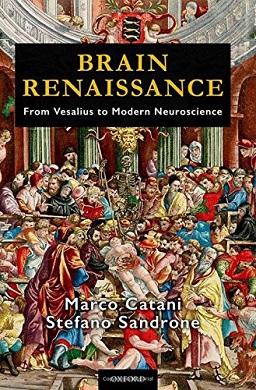Brain Renaissance
Brain Renaissance is a term that refers to the contemporary period of accelerated growth and interest in neuroscience and brain research. This era is characterized by significant advancements in understanding the structure, function, and capabilities of the human brain, driven by technological innovations and interdisciplinary collaboration. The Brain Renaissance has implications across various fields, including medicine, psychology, artificial intelligence, and neuroethics, among others.
Overview[edit | edit source]
The Brain Renaissance is marked by a surge in research and discoveries about the brain's complexities and mysteries. This period leverages cutting-edge technologies such as functional magnetic resonance imaging (fMRI), electroencephalography (EEG), and optogenetics to explore neural activity and brain functions. The integration of computer science and neuroinformatics has also played a crucial role in managing and interpreting the vast amounts of data generated by neuroscience research.
Historical Context[edit | edit source]
The concept of a Brain Renaissance is rooted in the historical progression of neuroscience. From the early anatomical studies of the brain in the Renaissance period to the development of neurology in the 19th century, each phase laid the groundwork for today's explosion of knowledge. The term itself draws a parallel with the Renaissance, a period of rebirth in arts and sciences, highlighting the transformative impact of current research on our understanding of the brain.
Key Areas of Research[edit | edit source]
During the Brain Renaissance, several key areas of research have emerged as particularly significant:
- Neuroplasticity: Understanding how the brain changes in response to experience, learning, and injury.
- Cognitive neuroscience: Exploring the neural mechanisms underlying cognition, emotion, and behavior.
- Brain-computer interfaces (BCIs): Developing systems that allow direct communication between the brain and external devices, with applications for restoring lost senses or mobility.
- Neuropsychopharmacology: Investigating how drugs affect the mind, with the aim of developing new treatments for mental health disorders.
- Neuroethics: Addressing the ethical implications of brain research, including issues of consciousness, privacy, and identity.
Impact[edit | edit source]
The Brain Renaissance has far-reaching implications for society. In medicine, it promises new treatments for neurological and psychiatric conditions. In education, insights into how the brain learns could transform teaching methods. The development of BCIs and neural prosthetics offers hope for individuals with disabilities, while advancements in artificial intelligence and machine learning draw heavily on models of brain function.
Challenges and Criticisms[edit | edit source]
Despite its potential, the Brain Renaissance also faces challenges. These include ethical concerns about brain privacy and manipulation, the risk of neuroenhancement leading to social inequalities, and the technical and financial barriers to research. Critics also warn against overpromising, noting that many discoveries may not lead to immediate practical applications.
Future Directions[edit | edit source]
The future of the Brain Renaissance will likely involve deeper integration of technology and neuroscience, with potential breakthroughs in understanding consciousness and treating brain disorders. Interdisciplinary approaches, combining insights from genetics, psychology, engineering, and other fields, will be crucial to navigating the complexities of the brain.
Search WikiMD
Ad.Tired of being Overweight? Try W8MD's physician weight loss program.
Semaglutide (Ozempic / Wegovy and Tirzepatide (Mounjaro / Zepbound) available.
Advertise on WikiMD
|
WikiMD's Wellness Encyclopedia |
| Let Food Be Thy Medicine Medicine Thy Food - Hippocrates |
Translate this page: - East Asian
中文,
日本,
한국어,
South Asian
हिन्दी,
தமிழ்,
తెలుగు,
Urdu,
ಕನ್ನಡ,
Southeast Asian
Indonesian,
Vietnamese,
Thai,
မြန်မာဘာသာ,
বাংলা
European
español,
Deutsch,
français,
Greek,
português do Brasil,
polski,
română,
русский,
Nederlands,
norsk,
svenska,
suomi,
Italian
Middle Eastern & African
عربى,
Turkish,
Persian,
Hebrew,
Afrikaans,
isiZulu,
Kiswahili,
Other
Bulgarian,
Hungarian,
Czech,
Swedish,
മലയാളം,
मराठी,
ਪੰਜਾਬੀ,
ગુજરાતી,
Portuguese,
Ukrainian
Medical Disclaimer: WikiMD is not a substitute for professional medical advice. The information on WikiMD is provided as an information resource only, may be incorrect, outdated or misleading, and is not to be used or relied on for any diagnostic or treatment purposes. Please consult your health care provider before making any healthcare decisions or for guidance about a specific medical condition. WikiMD expressly disclaims responsibility, and shall have no liability, for any damages, loss, injury, or liability whatsoever suffered as a result of your reliance on the information contained in this site. By visiting this site you agree to the foregoing terms and conditions, which may from time to time be changed or supplemented by WikiMD. If you do not agree to the foregoing terms and conditions, you should not enter or use this site. See full disclaimer.
Credits:Most images are courtesy of Wikimedia commons, and templates Wikipedia, licensed under CC BY SA or similar.
Contributors: Prab R. Tumpati, MD

